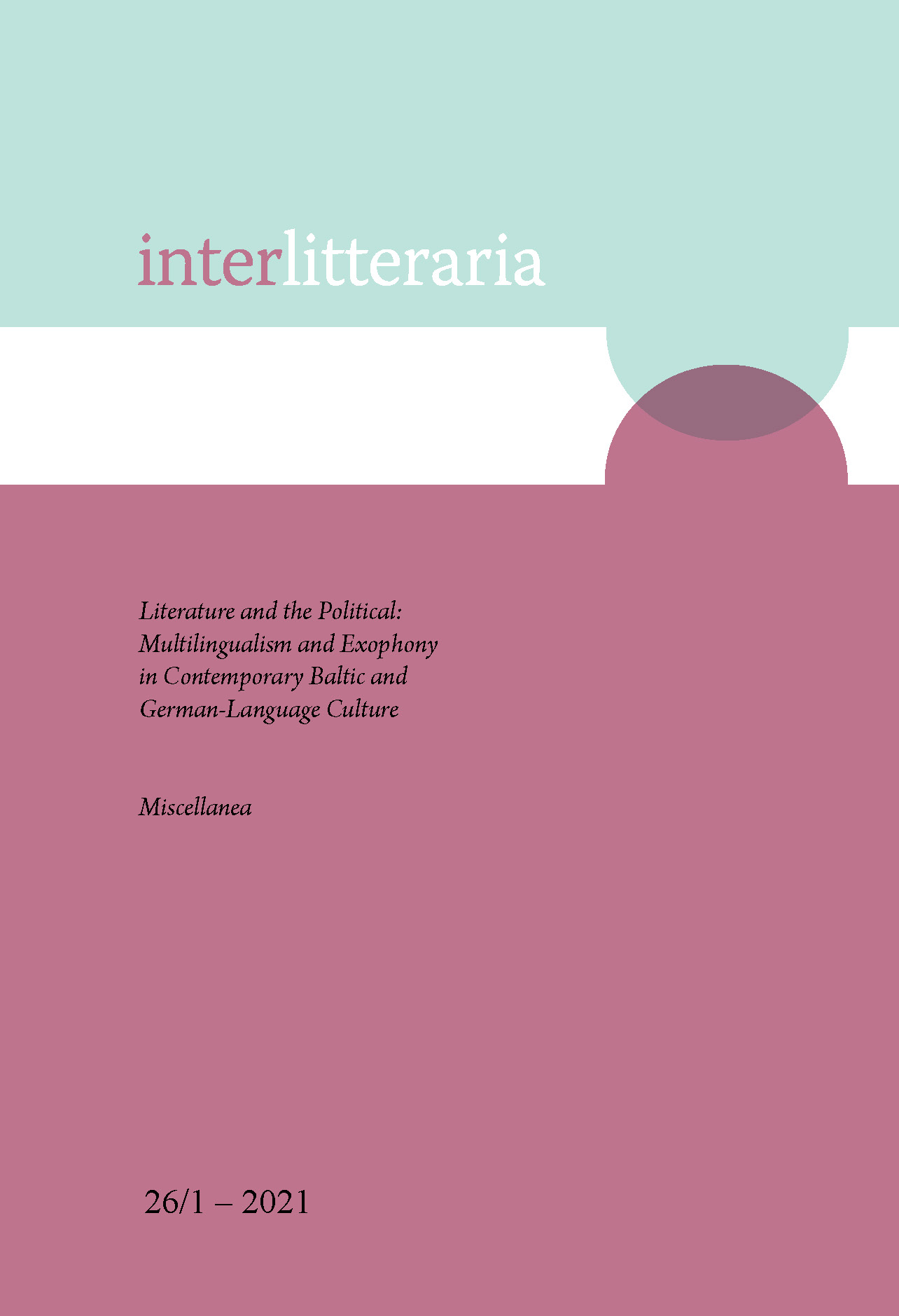Heute sprechen. Literatur, Politik und andere Sprachen im Lied (Herder, Alunāns, Barons)
DOI:
https://doi.org/10.12697/IL.2021.26.1.4Keywords:
linguistic diversity, literary politics, folk song, Johann Gottfried Herder, Krišjānis Barons, Juris Alunāns, anti-colonial literature, synchronisationAbstract
Speaking Today. Literature, Politics and Other Languages in Songs (Herder, Alunāns, Barons). This article claims that the politico-cultural relevance of literary texts in their respective present consists, among other aspects, of their handling of linguistic diversity. As examples, it presents three 18th and 19th century publications from the German and/or Latvian speaking territories which put (folk) songs into the centre of their rather different politicocultural endeavours. Herder’s collection of folk songs from 1778/79 is read as an attempt at a poetic new beginning that makes use of linguistic diversity qua translation in order to inspire originality in the ‘mother tongue’. The folk songs here serve to synchronise and dynamise linguistic means in the name of a new literature. The Dseesmiņas (‘little songs’), a collection of translations of European poetry into Latvian published by Alunāns in 1856, combines precisely this claim to renewal with an attempt at an anti-colonial synchronisation and modernisation of the Latvian language. Eventually, the six-volume collection of Latwju Dainas (Latvian folk songs), published by Barons around 1900, takes up Herder’s efforts to preserve folk songs. Barons synchronises a dialectally, materially and historically diverse corpus of songs in the name of anti-colonial emancipation. In terms of cultural policy, his project aims to give presence to pre-modern folk life under the conditions of modernity.
Downloads
Downloads
Published
Issue
Section
License
The contents of Interlitteraria are published under CC BY-NC-ND licence.


